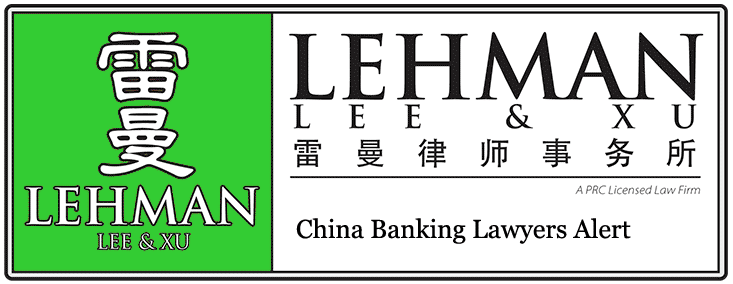Within the China (Shanghai) Pilot Free Trade Zone (the “Zone”), the Shanghai PBOC has taken a further step forward in its efforts to internationalise the RMB, relaxing the restrictions on certain cross-border RMB transactions originating from the Zone.
These latest developments, which were originally earmarked for liberalisation by the People’s Bank of China (the “PBOC”) in its blueprint for reform in the Zone, focus on the following areas:
- offshore RMB borrowing by Zone entities;
- two-way RMB cash pooling;
- centralised collection and payment of RMB funds from cross-border trade and service payment transactions between entities in the Zone and their onshore and offshore affiliates;
- the Zone as a centre for international financial transactions; and
- providing cross-border RMB clearing service to residents of the Zone.
Offshore RMB borrowings
- Non-financial enterprises and non-bank financial institutions established in the Zone are now able to obtain RMB financing outside mainland China, subject to the following restrictions:
- cap: the amount borrowed cannot exceed (i) the borrower’s paid-in capital (for non-financial institutions) or (ii) 1.5 times the borrower’s paid-in capital (for non-bank financial institutions). This cap is in turn subject to adjustment by the Shanghai PBOC to reflect national credit policy;
- term: a minimum loan term of one year;
- use: proceeds can be used for trade finance, operational needs or otherwise in accordance with national macro-economic policies, but cannot be used to invest in securities, derivatives or wealth management products, nor for on-lending to third parties; and
- geography: the proceeds can only be used within the Zone or outside of China.
Foreign-invested enterprises which were set up before the launch of the Zone, but in the geographical area covered by the Zone, have the additional flexibility of making a one-time election to borrow RMB outside mainland China either in accordance with the new rules, or under existing rules which permit them to borrow foreign debt up to the difference between their total investment amount and registered capital.
RMB cash pooling
Of interest to multinationals seeking to establish regional RMB treasury operations, as well as outwardly-focused Chinese corporates needing to move RMB to and from their overseas subsidiaries, are developments around RMB cash pooling.
Companies established in the Zone with operating businesses or investments are now able to pool the RMB funds of those onshore and offshore subsidiaries and affiliates that are party to a cash pooling agreement in a special cash pooling account opened with a bank located in Shanghai. From this cash pooling account, funds can be allocated by the Zone accountholder to support its group entities’ operational and investment needs. Although funds in the RMB cash pool are restricted to RMB funds generated from the group entities’ business operations and investments, and cash generated from financing activities cannot be introduced into the RMB cash pool, the Zone rules give greater flexibility than those applicable outside the Zone1 where cross-border flows of RMB are restricted to onshore-offshore loans and repayment of principal and interest under these loans.
In addition, of interest to private equity investors seeking to move RMB funds among their portfolio companies and to make new portfolio investments in mainland China, RMB funds can also be used for investment by participants in the cash pool, not just for operational needs.
Centralised processing of cross-border RMB current account transactions
A company in the Zone which operates a business or holds investments may also process, through a special account opened with a bank located in Shanghai, RMB receipts and payments arising from regular cross-border trade and service transactions amongst its onshore and offshore group entities, as well as supply chain entities outside its group which trade regularly with its group entities. This will allow a company in the Zone to process these transactions centrally on behalf of its group, either on a combined basis or netted off against each other, removing the requirement
outside the Zone where an entity needs to submit evidence for each individual transaction to a bank to process the payment.
RMB financial markets
In its drive to make the Zone an international financial centre, and to attract business from other overseas markets, the Shanghai PBOC has stated that the China Foreign Exchange Trade System and the Shanghai Gold Exchange will begin to offer RMB-denominated clearing services in the Zone to RMB investors from the Zone and outside mainland China, although no exact timing has been given.
In addition, the Shanghai Stock Exchange has recently announced that it will this year set up a trading platform in the Zone for investors from the Zone and from outside mainland China, potentially providing an additional platform for non-Chinese investors to invest in companies listed in mainland China. Currently only certain qualified investors are able to invest in listed Chinese securities.
Clearing services
In order to make the Zone an international centre for RMB clearing services, individuals who work in the Zone (including foreigners who have resided in mainland China for at least one year) may now clear RMB cross-border trade and service payment transactions through individual or sole proprietorship accounts opened with banks located in Shanghai.
Next steps
Although at a relatively high level, banks in Shanghai have begun to implement the Shanghai PBOC’s guidance, allowing companies and individuals to start to take advantage of the reforms. Another encouraging development has been the gradual release of new rules defining the building blocks of the Zone’s new financial infrastructure, touching on payment flow reporting, anti-money laundering, due diligence and internal controls. However, whilst a number of rules have now been published, many more are still anticipated.
Reference: Notice on broadening the use of offshore RMB in the Shanghai Free Trade Zone (关于支持中国(上海)自由贸易试验区扩大人民币跨境使用 的通知)
Issuing authority: The People’s Bank of China, Shanghai branch (“Shanghai PBOC”)
http://www.linklaters.com/Publications/AsiaNews/LinkstoChina/Pages/Internationalisation-RMB-in-Shanghai-Free-Trade-Zone.aspx
|


